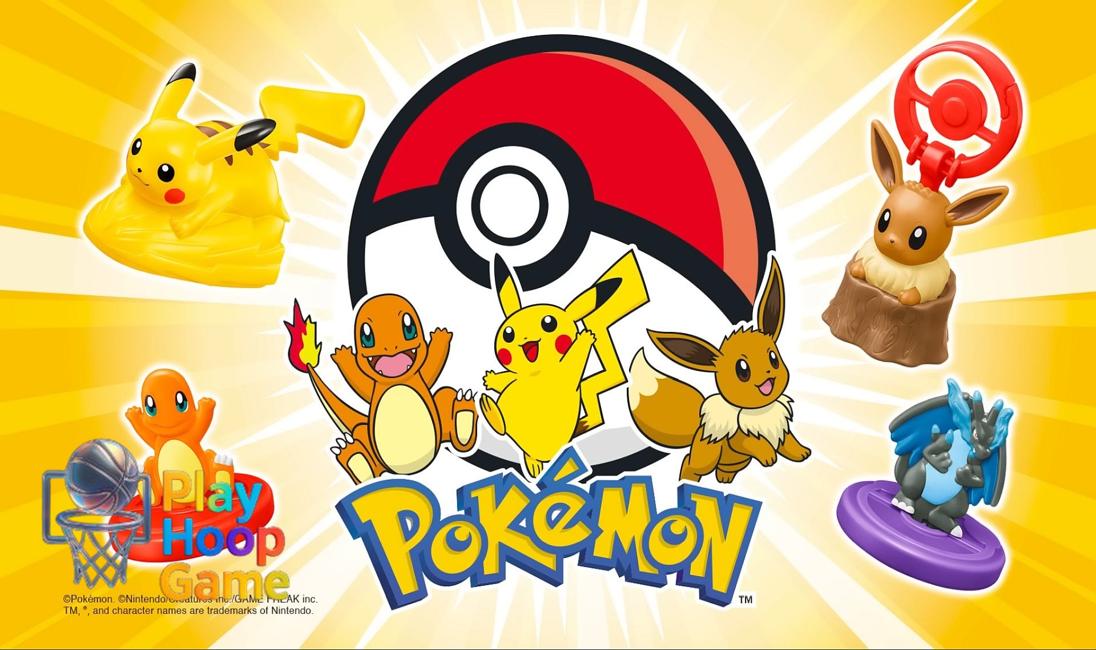I still have this crystal-clear image seared into my brain from 2021. It’s a photo of a car trunk, filled to the absolute brim with those grinning, red Happy Meal boxes. Not for a birthday party. Not for a charity drive. No, this was the arsenal of a Pokémon card scalper during the 25th-anniversary promotion, and it was a perfect, depressing snapshot of a hobby gone mad.
It was a mess. Grown adults yelling at teenage cashiers. People buying a hundred meals and just… tossing the food. Entire local stocks vanishing in an hour, only to reappear on eBay with a 1,000% markup. It felt less like a fun kid's promotion and more like a weird, depressing black market for shiny cardboard.
So, here we are again. Another year, another set of exclusive Pokémon cards packed alongside a burger and fries. And as the cycle begins anew, the collective groan from actual fans and parents was audible. We were all bracing for impact. But wait. Something’s different this time. A whisper of hope from the Golden Arches, of all places.
The Great Happy Meal Standoff of 2024
It seems someone at corporate headquarters finally saw the eBay listings. Or maybe they just got tired of the bad press. Whatever the reason, McDonald’s has decided to step into the ring.
The new directive, trickling down to franchise owners and managers, is simple but profound: limits. Strict limits on how many Happy Meals, and more importantly, how many toys, a single person can buy. The goal is to cut the professional scalpers off at the knees before they can hoard every last Pikachu and Sprigatito in a hundred-mile radius. It's a corporate policy that essentially says, "Please, for the love of god, let the children have the toys."
And I’ve got to admit, it’s a fascinating, almost noble, attempt to legislate fun. But will it work? I’m cautiously optimistic. Maybe leaning more towards cautious.
The frustrating thing about this whole situation is how predictable it is. You have a beloved brand like Pokémon, which operates on a finely-tuned engine of nostalgia and rarity. Then you have the most accessible fast-food chain on the planet. You smash them together and create a limited-time-only product. It's the perfect storm for a secondary market feeding frenzy. It’s less about collecting and more about arbitrage—spotting an inefficiency in the market (a $4 toy that can be flipped for $40) and exploiting it ruthlessly.
It reminds me a bit of the weirdness in modern physical game collecting. You see these discussions about why are video game cases empty on store shelves, and it all ties back to this strange, warped perception of value and ownership in hobbies. The object itself becomes secondary to its perceived market worth.
So, McDonald’s Gets Tough On Pokémon Scalpers Ahead Of Another Weekend Of Giveaways
This is the headline, right? The big news. And as we head into another weekend, this policy is getting its first real stress test. The problem, of course, is enforcement. A corporate memo is one thing; a stressed-out manager dealing with a very determined, very loud "collector" who’s trying to use a loophole is another thing entirely.
Scalpers are like water. They find the cracks. They’ll go through the drive-thru ten times. They’ll bring their friends, their cousins, their very confused grandmother. They’ll hit every McDonald’s in a 50-mile radius. The limit-per-person rule slows them down, for sure. It introduces friction. It makes the whole operation less efficient, which is the entire point. But stop them completely? I doubt it.
But here’s the thing—it doesn’t have to be a perfect system. It just has to be better. If this new toughness means that a kid who actually wants the card for their binder has a fighting chance of getting one, I’ll call it a win. If it means fewer car trunks overflowing with sad, uneaten Happy Meals, that's a bonus.
I think the part that gets lost in all the talk about money and markets is the simple magic of it. Remember being a kid and getting that one, specific toy you were hoping for? That little jolt of joy? That’s what this is supposed to be about. It’s not an investment portfolio. It’s a cheap thrill, a fun little bonus with your meal. When that gets co-opted and turned into a soulless grind for profit, the whole enterprise just feels… sad.
And for those of us who aren't into the collector's chase, there's always a world of instantly accessible fun on sites like CrazyGames, where the only thing you have to worry about is your own high score, not a ruthless secondary market.
Is This Even About the Cards Anymore?
I was about to say this is purely about the money for scalpers, but actually, that’s not quite right. For some, I think it’s the thrill of the hunt. It’s the game of beating the system. It's a weird extension of gaming culture itself, almost like finding an exploit in a video game. It's a strange mix of hustle culture and the collector's mindset, and frankly, it’s exhausting for everyone else.
The community's reaction to the new McDonald's policy has been a mix of relief and "I'll believe it when I see it." We've been burned before. We’ve seen employees allegedly selling boxes out the back door. We've seen the chaos firsthand. Trust is low.
But maybe, just maybe, this is a turning point. A sign that companies are starting to realize that fostering goodwill with their actual, long-term fans is more valuable than the short-term sales spike from a scalper buyout. Or maybe I’m just an optimist who wants to believe that, this time, I can get a silly little holo card without having to monitor a Discord server and bribe a drive-thru attendant. A fan can dream, right?
Your Questions About the McDonald's Pokémon Card Chaos, Answered
So, what's the big deal with these McDonald's cards anyway?
Honestly, it's a mix of things! They're exclusive, for one—you can't get these specific versions of the cards anywhere else. Plus, they often feature a special holo pattern or stamp that makes them unique. For serious collectors, they're another piece of the massive Pokémon puzzle to complete. For kids (and the young at heart), it’s just plain cool to get a surprise Pokémon card with your meal. It taps right into that nostalgia vein.
How can I actually get the cards without buying 50 Happy Meals?
Your best bet is to be strategic and polite. Call your local McDonald's ahead of time and ask about their policy on selling the toys separately (some do, for a couple of bucks) and what their limits are. Go during off-peak hours, like mid-afternoon. And please, be nice to the employees! They’re on the front lines of this chaos and a little kindness goes a long way. Don't be the person arguing over a Pikachu.
Is it even worth trying, or are the scalpers going to get them all?
It’s more worth it now than it was during the last big promotion. Because McDonald’s gets tough on Pokémon scalpers ahead of another weekend of giveaways, their new policies are designed to give regular folks a better shot. You might not get every single card, but your chances of snagging your favorite are definitely higher than they were when people were buying them by the case. It's worth a casual try, at least.
Why doesn't McDonald's just sell the cards separately to stop this?
This is the million-dollar question, and the answer is a bit complicated. The cards are technically a "toy" meant to promote the sale of Happy Meals. Selling them entirely separately could create issues with their agreement with The Pokémon Company and change the nature of the promotion. Their main business is selling food, and the toy is the incentive. The current compromise—allowing some locations to sell the toy a la carte with a meal purchase—seems to be the middle ground they've settled on.

























